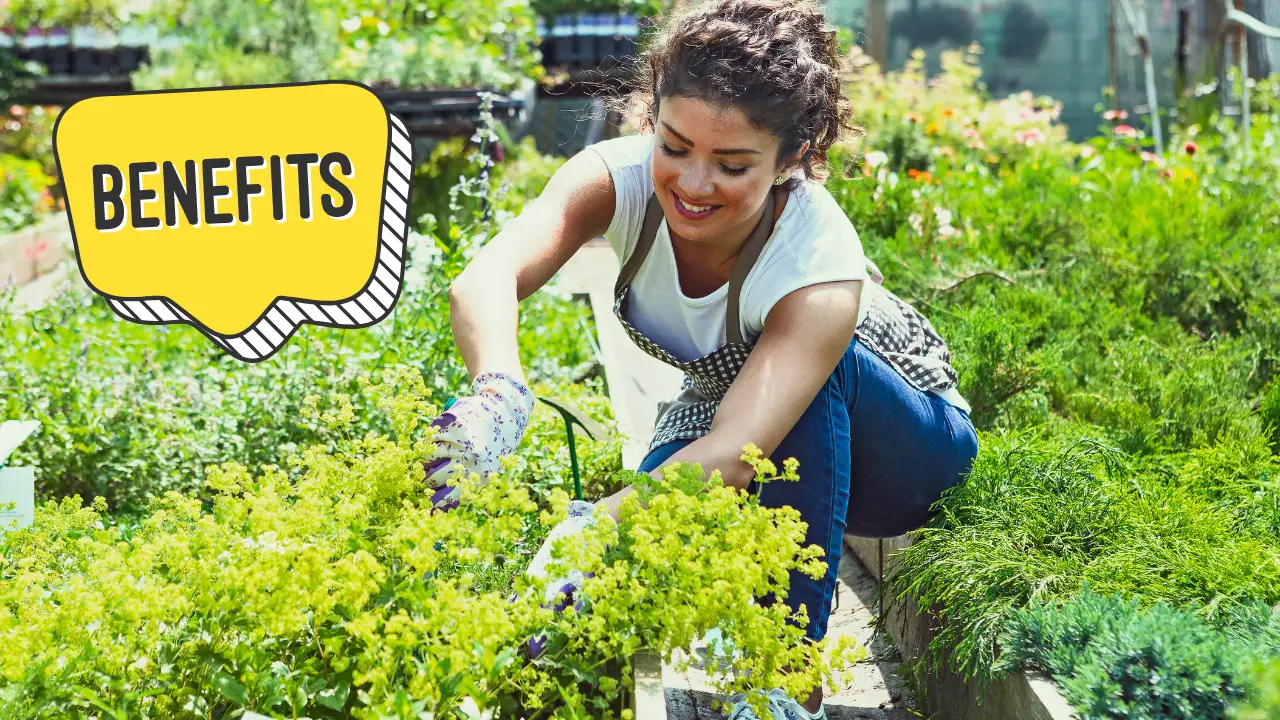1. Introduction
Gardening has become increasingly popular in recent years, with more people realizing the benefits of growing their own fruits, vegetables, and flowers. Gardening can be done on any scale, from a small balcony to a large backyard, making it accessible to almost everyone. This activity offers numerous benefits for physical, mental, and environmental health, as well as social connection.
2. Physical Health Benefits of Gardening
Boosts Immune System
Gardening can be a great way to boost your immune system. Exposure to the dirt and soil can help introduce beneficial bacteria and microbes into your body, which can help strengthen your immune system. Additionally, gardening can expose you to vitamin D, which is produced when your skin is exposed to sunlight. This essential vitamin helps regulate your immune system and maintain bone health.
Reduces Risk of Chronic Diseases
Numerous studies have shown that gardening can help reduce the risk of chronic diseases such as heart disease, stroke, and diabetes. Gardening involves physical activity, which can help improve cardiovascular health and reduce blood pressure. Additionally, the consumption of fresh fruits and vegetables grown in your own garden can provide important nutrients that can help prevent chronic diseases.
Improves Strength and Flexibility
Gardening involves a range of physical movements, including bending, squatting, and lifting, which can help improve strength and flexibility. Regular gardening can help build muscle mass, improve balance, and increase range of motion, making it an excellent form of low-impact exercise.
3. Mental Health Benefits of Gardening
Reduces Stress and Anxiety
Gardening has been shown to reduce stress and anxiety levels. The act of caring for plants can be calming and meditative, allowing individuals to relax and reduce feelings of stress. Additionally, exposure to nature has been shown to have a positive impact on mental health, reducing symptoms of depression and anxiety.
Improves Mood and Well-being
Regular gardening has been linked to improvements in mood and overall well-being. Engaging in a rewarding activity like gardening can provide a sense of accomplishment and purpose, boosting feelings of self-esteem and confidence. Gardening can also be a source of mindfulness, allowing individuals to stay present in the moment and find joy in the simple act of tending to plants.
4. Environmental Benefits of Gardening
Helps to Preserve Biodiversity
Gardening can play an important role in preserving biodiversity. By planting a variety of plants, including native species, you can create a habitat that supports a diverse range of wildlife, from birds to insects. Additionally, gardening without the use of pesticides can help promote a healthy ecosystem by allowing natural pest control to take place.
Supports Local Wildlife
Gardening can provide a source of food and shelter for local wildlife. By planting flowers that attract bees and other pollinators, you can help support these important species. Additionally, creating a water source like a bird bath can provide a valuable resource for birds and other animals.
Reduces Carbon Footprint
Growing your own food can help reduce your carbon footprint by decreasing the distance that your food has to travel. Additionally, gardening without the use of synthetic fertilizers and pesticides can help reduce the environmental impact of agriculture.
5. Social Benefits of Gardening
Builds Community
Gardening can be a great way to build community. Community gardens, where individuals come together to grow food and plants in a shared space, can provide a sense of connection and belonging. By working together towards a common goal, individuals can develop relationships and a sense of community.
Enhances Social Interaction
Gardening can also enhance social interaction. Working in a garden can provide an opportunity to connect with others and engage in meaningful conversations. Additionally, participating in community gardening events or workshops can provide opportunities to meet new people and learn new skills.
Increases Sense of Purpose
Gardening can provide a sense of purpose and meaning. By working towards a goal like growing your own food or creating a beautiful garden, individuals can feel a sense of accomplishment and pride. Additionally, gardening can provide a way to give back to the community by donating excess produce to local food banks or sharing plants with neighbors.
6. How to Get Started with Gardening
Choosing the Right Location
Before you start gardening, it’s important to choose the right location. Consider factors like the amount of sunlight and water your plants will need, as well as the type of soil you have. Additionally, think about the size of the space you have available and what types of plants you want to grow.
Deciding What to Grow
When deciding what to grow, consider factors like your climate, the season, and the amount of space you have. Additionally, think about what types of plants you enjoy and what will be most practical for your needs.
Selecting the Right Tools and Supplies
To get started with gardening, you’ll need some basic tools and supplies. These might include a shovel, rake, gloves, and watering can. Additionally, you may need to purchase soil, fertilizer, and seeds or seedlings.
7. Conclusion
In conclusion, gardening is an enjoyable and rewarding hobby that provides a range of benefits for physical, mental, environmental, and social health. From reducing the risk of chronic diseases to enhancing social interaction, there are many reasons to start gardening today. By choosing the right location, deciding what to grow, and selecting the right tools and supplies, anyone can get started with this satisfying activity.
8. FAQs
- Can gardening help me eat healthier?
- Yes, by growing your own fruits and vegetables, you can have access to fresh, nutrient-rich food that can improve your overall health.
- What if I don’t have a lot of space for gardening?
- Even if you don’t have a lot of space, you can still get involved in gardening. Consider container gardening or growing plants on a balcony or windowsill.
- Is gardening a good form of exercise?
- Yes

